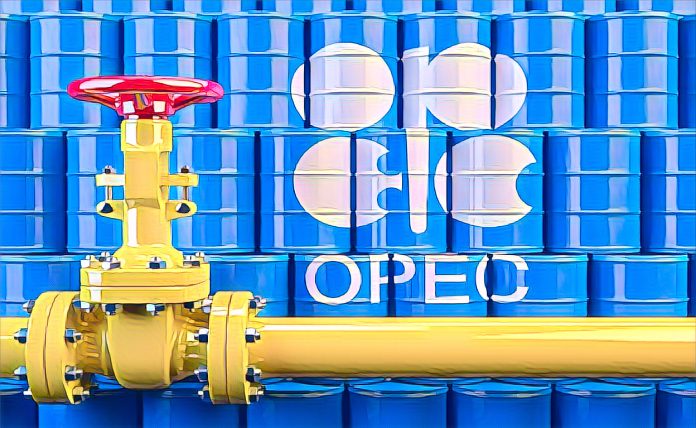The Organization of the Petroleum Exporting Countries (OPEC) has raised questions about recent claims by Nigerian President Bola Tinubu concerning the nation’s oil production levels. This discrepancy has sparked a debate within the energy sector, particularly about the accuracy of the data provided by Nigerian authorities.
President Tinubu had recently announced that Nigeria’s oil production had surged to 1.6 million barrels per day (bpd), a figure that was presented as a significant achievement and a sign of recovery for the country’s vital oil industry. He declared this increase as part of broader reforms aimed at revitalizing Nigeria’s oil and gas sector, which had faced years of disruptions and declining output.
“Our once declining oil and gas sector is experiencing a resurgence on the back of reforms. Last month, we increased our oil production to 1.6 million barrels per day, and our gas assets are receiving the much-needed attention,” Tinubu stated. This announcement was framed as a positive development for Nigeria’s economy, which heavily depends on oil exports.
However, OPEC’s latest data appears to tell a different story. According to the organization’s report, Nigeria’s actual oil output has been significantly lower than the figure cited by the president. The report indicates that in June 2024, Nigeria’s daily oil production was 1.276 million barrels, with a slight increase to 1.3 million barrels per day in July 2024. These figures were based on direct communication with Nigerian authorities, but even secondary sources provide a slightly higher estimate, indicating that Nigeria produced 1.386 million bpd in June, up by only 16,000 barrels compared to May’s output of 1.369 million bpd.
This discrepancy between the government’s claims and OPEC’s data has raised concerns among industry experts and analysts. Bala Zakka, an oil and gas analyst, criticized the gap between the political statements and the hard data. “Nigeria is not doing well,” Zakka stated. “We have an internal issue affecting the sector. Political statements are not facts, as the data from OPEC has shown. We often play politics with our resources, but investors make decisions based on accurate data.”
Zakka’s comments highlight a broader issue within Nigeria’s oil sector. He emphasized the need for the Nigerian government to focus on creating a better business environment, implementing effective policies, and being transparent about the state of the country’s most critical economic sector. The inconsistency in reporting not only undermines confidence in the government’s ability to manage the oil industry but also affects investor confidence.
Despite these challenges, Nigeria remains Africa’s largest oil producer, though its lead over Libya, which produced 1.175 million bpd in July, is narrowing. The ongoing shortfall in production poses a significant obstacle to President Tinubu’s administration, which is striving to boost revenue generation in a country that relies heavily on oil exports for foreign exchange and government income.
Heineken Lokpobiri, Nigeria’s Minister of Petroleum Resources, previously stated that the government aims to achieve a daily production of two million barrels next year. However, given the current situation, achieving this goal seems increasingly unlikely. The outlook for Nigeria’s oil sector remains uncertain, with numerous challenges still unresolved.
The oil industry in Nigeria has long been plagued by a range of issues, including insecurity, low investment levels, and the exit of several international oil companies (IOCs). These challenges have been exacerbated by delays and complications related to the approval of oil asset transfers, further hindering the sector’s growth. Earlier this month, the Nigerian National Petroleum Company Limited (NNPCL) announced renewed efforts to address the challenges that have kept crude oil production stagnant over the past five months. However, it remains to be seen whether these efforts will yield the desired results.
In March, President Tinubu signed a series of fiscal incentives aimed at improving the investment climate and positioning Nigeria as a leading destination for oil and gas investments in Africa. These initiatives were designed to reverse a decade-long decline in investment in the sector. The directives included financial incentives for the development of non-associated gas, midstream operations, and deepwater projects, all of which are crucial for boosting production and attracting investment.
Additionally, the government’s initiative seeks to streamline the contracting process, reducing the cycle time to six months. This move is intended to make it easier for investors to navigate the complexities of the Nigerian oil industry and to encourage more rapid development of new projects.
Despite these efforts, the government faces an uphill battle in meeting its oil production targets. In the 2024 budget, the federal government set a daily oil production target of 1.78 million bpd, with a benchmark price of $77.96 per barrel. These figures are critical for meeting the government’s revenue goals, but with current production levels falling short of expectations, there is growing concern about how these targets will be met



